PoliticsNow: AEC reveals $342 million federal election bill
The cost of the 2019 federal election was ‘significantly higher’ than the two previous, says the AEC.
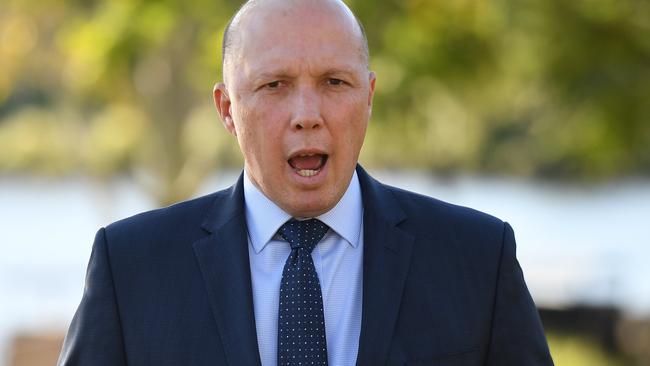
- ISIS brides need DNA test
- Tensions rise in Question Time
- Refugee appeals overwhelm tribunal
- Palaszczuk found in contempt
- Labor hurdle to big stick laws
- ALP ‘conning Aussies on medivac’
Hello and welcome to PoliticsNow, The Australian’s live blog on the happenings at Parliament House in Canberra.
Home Affairs Minister Peter Dutton says “there is no question” the return of ISIS brides in Syria would expose Australians to an increased risk of terrorism and that DNA testing would be required to verify their citizenship claims.
Mr Dutton has also accused Labor of conning Australia over its medivac legislation.
Greg Brown 9.33pm: Federal election cost $342 million
The 2019 federal election cost $342 million to administer, the Australian Electoral Commissioner Tom Rogers has revealed.
Mr Rogers told Senate Estimates the cost of holding the election was “far higher” than the two previous, although he didn’t say the cost of the 2013 or 2016 elections.
“It is significantly more than 2016 and 2013,” Mr Rogers said.
“Population growth, expectation, cyber environment, costs that we can’t foresee that increase.”
Lilly Vitorovich 9.12pm: ABC’s $5k fee for Al Jazeera footage
The ABC paid a $5000 licence fee to Al Jazeera for its undercover documentary into the One Nation Party and the American gun lobby, which hurt Pauline Hanson’s party at the May federal election.
Managing director David Anderson told Senate Estimates the documentary was acquired through its entertainment and specialist division, adding that the $5000 fee “might have been in kind for access to the ABC’s archive footage”.
Lilly Vitorovich 7.33pm: ABC funding freeze ‘will leave content on ice’
ABC managing director David Anderson has warned that the public broadcaster faces headwinds, including rising content costs and stiff competition from international streaming giants, including Netflix and Disney.
In his opening statement to Senate Estimates on Tuesday evening, Mr Anderson said the television and radio broadcaster faces a “challenging operating environment” as it faces a budget hole of $84m after the federal government froze its $1bn annual funding for three years. As a result, the ABC needs to find savings around $40m annually from the 2022 financial year.
Ben Packham 7.24pm: No decision yet on sub refit site
Defence spent $14m on a plan to upgrade Adelaide’s Osborne shipyards that assumed scheduled rebuilds of the nation’s Collins-class submarines would be shifted to Perth, a Senate estimates hearing was told on Tuesday.
As South Australia and Western Australia fight it out to host the lucrative Collins-class upgrades, Finance Minister Mathias Cormann said cabinet was yet to decide where the life-extension works would be undertaken.
The boat upgrades are worth an estimated $400m in annual economic activity to the winning state until the Collins boats are phased out in the 2050s.
Greg Brown 6.00pm: MPs to raise awareness for skin cancer
Labor frontbencher Jason Clare has formed a parliamentary friendship group to raise awareness for skin cancer, as he returns to work after having surgery to remove a melanoma.
Mr Clare, 47, will co-chair the bipartisan group with Nationals MP Darren Chester, who had a mole removed when he was a teenager.
Mr Clare, who represents the western Sydney seat of Blaxland, said he was lucky he went to a doctor as soon as he noticed a mole on his leg had changed colour.
He said this ensured the melanoma was picked up at the treatable level of stage one and might have saved his life.
“I got a bit paranoid and I’m glad that I was. I decided to book an appoint with the dermatologist,” he said.
“I feel I am very lucky because if I hadn’t noticed it and I hadn’t said to the doctor ‘I think we should cut this out’, it would still be there and it would still be growing. The longer it is left to grow on your body, the more chance of it getting into the blood system. If I waited … it would have been stage four cancer and not stage one.
“The simple message is get checked. Blokes are really bad at looking after their health generally but for everybody, men and women, whether you have got pale skin or whether you have olive skin or dark skin, go to the doctor regularly, go to a dermatologist and get an annual skin check. The alternative is you could die.”
Two-thirds of Australians get skin cancer by the age of 70.
The opposition housing spokesman said he had been concerned he would not live to see his son grow up.
“So the waves of relief when the doctor explained to me that this was treatable and I was very lucky we got it early,” noting he would have to get a check-up every three months for the rest of his life.
“The most terrifying word in the English dictionary is the c-word. We talk about that a lot in (parliament) but even though you know a lot of people who have cancer in their life you never really prepare yourself for getting told you have got it.
“So I still use the word melanoma rather than cancer because it’s a hard word to say.”
Mr Chester said it was a “wake-up call” when he had a mole removed.
“The Australian outdoor lifestyle certainly adds to our skin cancer risk and it’s important that parliamentarians work together to promote research and prevention measures,” Mr Chester said.
“As a teenager, I had a mole removed which was a bit of a wake-up call to pay more attention to personal sun protection measures, and I’ve got a lot of mates who’ve had skin cancer treatment.”
Olivia Caisley 5.02pm: PM’s tribute to child sex abuse victims
Scott Morrison paid tribute to the victims of institutional childhood sexual abuse in a heartfelt speech at Parliament House on Tuesday, declaring the national redress scheme needed to “do better” in supporting survivors.
It comes as the government announced an additional $11 million in funding into the program in order to make the application process for compensation easier for victims.
The Prime Minister became emotional at times as he spoke of the trauma that had been “hiding in plain sight” for many years.
“We acknowledge the national trauma - a national trauma that was hiding in plain sight,” Mr Morrison said on Tuesday. “The silenced voices and what I described as the muffled cries in the darkness, and the never-heard pleas of tortured souls.”
Mr Morrison’s words came a year after he delivered a national apology to the victims of institutional abuse in the wake of the royal commission into child sexual abuse.
“Sorry to families who were forever scarred and destroyed,” he said. “Sorry to those who weren’t believed. Our failure as a nation was catastrophic and inexcusable. And no apology can undo it.”
“Yet, we apologised, because we should’ve, and we must have and I’d like to think of it as an ongoing, continuous apology.”
Mr Morrison described the apology as one of the government’s “most difficult moments” and said he agreed with a survivor who said child sexual abuse wasn’t just a crime against the person but against the social fabric of the nation.
“On this day one year ago, we paid tribute to the thousands of people who came forward bravely, and with courage, to tell their story to the royal commission. And there wasn’t just a few - the numbers make us shudder. 17,000 came forward. And nearly 8,000 recounted their abuse in private sessions of the royal commission.”
He said the government would continue to provide annual reporting on the scheme.
4.05pm: Watchdog rules on massacre broadcast
The media watchdog has defended its decision not to find media companies in breach of regulations for broadcasting footage of the Christchurch shootings, AAP reports.
Australian Communications and Media Authority chair Nerida O’Loughlin told a Senate estimates hearing the authority had discretion on whether or not to find broadcasters in breach.
“Overall, we felt they had behaved incredibly responsibly,” Ms O’Loughlin said. “I would just like to clarify that the fact that we didn’t choose to make breaches does not mean we didn’t take the footage incredibly seriously.”
Australian Brenton Tarrant, 49, has pleaded not guilty to 51 counts of murder, 40 counts of attempted murder and one charge of terrorism in relation to the shootings in March, which the gunman streamed live on Facebook as he targeted mosques.
Broadcasters used excerpts of this footage, as well as footage of victims, in their news bulletins.
The authority’s deputy chair Creina Chapman said no broadcaster ever showed someone being shot, with the ABC not using the shooter’s footage at all. Ms Chapman said she’d like broadcasters to review their policies in light of the 24-hour news cycle.
“I think it’s safe to say there’s always areas of grey ... and the conclusion at the end of the day was the broadcasters did not cross the line,” Ms Chapman said.
Ms O’Loughlin said the authority reviewed more than 200 hours of broadcast footage from the day of the shooting on Friday, March 15 until the following Monday.
She said they instead decided to engage with broadcasters directly to review where internal codes of practice had stood up and where they could be improved.
— AAP
Olivia Caisley 3.47pm: Tensions flare in QT
The Morrison government and Labor locked horns in question time on Tuesday, as tension ratcheted up between the major parties.
While the drought and the economy remained hot topics for the second day in a row, a sense of tetchiness and frustration was palpable in the chamber, with Speaker Tony Smith repeatedly calling for calm and quiet between the braying MPs.
After multiple Labor MPs, including opposition education spokeswoman Tanya Plibersek, were ejected from the chamber, Mr Smith threatened to name any one who made further interruptions.
“The level of interjections is becoming ridiculously high,” Mr Smith said. “There are conversations going on everywhere. I mean, I’m not going to get upset about it, I’m just going to act on it.”
“...The only other option I have if I feel that is not getting members’ attention, frankly, is to name someone.”
Scott Morrison ruled-out forming a war cabinet with Labor to tackle the drought, after a request from opposition resources spokesman Joel Fitzgibbon.
The Prime Minister argued that such a cabinet hadn’t been used during wartime, but told Labor the National Drought Coordinator’s report into the national crisis would be released in the “not-so-distant” future.
The report, compiled by Major General Steven Day, was delivered to the government in April.
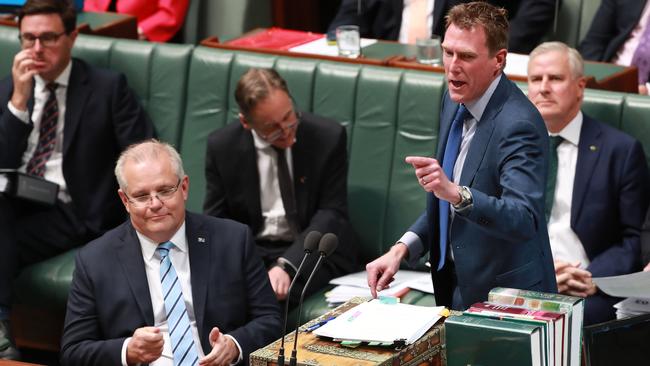
Olivia Caisley 3.21pm: Cattle trail
Opposition immigration spokesman Shayne Neumann calls on Scott Morrison to answer why the government promised to spend $145 million on improving Australia’s cattle supply chains, when it has spent only $40m.
The Prime Minister says he isn’t going to take lectures from the Labor Party after they made a “panicked decision” to shut down the live cattle trade “in the wake of a television program”.
The 2011 report from Four Corner exposed instances of cruelty inflicted on Australian cattle that were exported to slaughterhouses in Indonesia.
“Under our Government, what we’re working towards is $100 billion agricultural industry by 2030 and this afternoon,” Mr Morrison says. “I’m looking forward to sitting down with the National Farmers’ Federation to not only talk about those projects but to achieve and realise what can be gained in our agricultural sector.”
After being called-out on relevance Mr Morrison continues:
“Our Government does not act in a sense of panic or crisis. We act in a stable and certain way, which gives people confidence in the future and enables us to invest and plan for their future.”
Agriculture Minister David Littleproud adds to the response, saying the government is working to restore its relationship with the cattle industry.
“What we are doing is slowly putting an environment around the agricultural industry, particularly the live export industry — $1.8 billion a year — it is worth to this country,” Mr Littleproud says.
“It’s important that we continue to make that investment, make that money available for industry and continue to work through the supply chain.”
He described the government’s recent ratification of the Indonesian Free Trade Agreement as a “proud moment” that would facilitate trade with Australia’s closest neighbour.
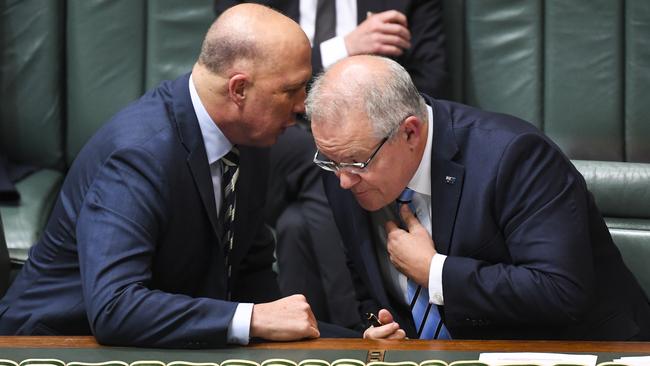
Olivia Caisley 3.02pm: Corridor of uncertainty
Labor MP Anne Aly calls on Scott Morrison to confirm that a child who starts school this year will be in high school before the upgrade to the road corridor between Karratha and Tom Price is complete.
Deputy Prime Minister Michael McCormack takes the question and launches a fresh assault on Labor over their failure to support the resources sector.
“A child who begins school this year will benefit from the fact that this Government backs the resources sector,” Mr McCormack says. “Under those opposite, had they taken government on May 2018, well they didn’t back the resources sector. Karratha and Tom Price are reliant on the resources sector.”
Mr McCormack calls for “more cheers” for the Morrison government’s $100 billion, 10-year pipeline of investment.
Michael Roddan 2.55pm: Staffing cap may not fit
The Morrison government has indicated it could scrap the controversial public service staffing cap when the federal budget is back in surplus, amid claims the strict limit on public servants has resulted in a blow-out in spending on labour hire.
Introduced in 2015, the APS staffing cap aims to keep average staffing levels in the public service in line with 2006-07 levels.
Appearing before a Senate Estimates committee on Tuesday, Finance Minister Mathias Cormann said the government was not about to allow “open slather” on increasing the number of public servants but noted that the “environment has changed” since the cap was introduced.
Senator Cormann said with the budget coming back in surplus, any increases to the public service would be “as high as necessary and as low as possible”.
“I don’t want to send a message here that it’s open slather on the size of the public service,” he said.
Mr Cormann also said departmental expenses, including the cost of contractors and consultants, as a proportion of total government spending “continues to go down” and that the staffing cap was evidence of sound financial management.
Labor has vowed to scrap the cap amid a claim that spending on labour hire had tripled under the Coalition.
Australian Public Service Commissioner Peter Woolcott yesterday told Estimates the cap was not having a negative impact on skills in the public service bureaucracy.
Mr Woolcott also said former Telstra chief executive David Thodey’s review of the public service would address the issue of staffing caps, but was unable to say when the government would release the long-awaited review.
Former prime minister Malcolm Turnbull announced the review of the 150,000-strong APS last May.
Government contracting has grown to become a $47bn sector, on average, across the five years to 2017. That is an $8bn-a-year increase to the average $39bn for the previous five years to 2012.
According to Mr Cormann, departmental expenses as a share of all government spending was down from 8.5 per cent in 2008 to 7 per cent last year. It is expected to fall to 5.4 per cent by 2023.
Olivia Caisley 2.52pm: Northern exposure
Labor MP Luke Gosling asks Scott Morrison to confirm that only $50 million of the $5 billion Northern Australia Infrastructure Fund has been spent since it was announced in 2015.
The Prime Minister says he will provide Mr Boothby with a full update regarding the fund
Olivia Caisley 2.50pm: Plibersek rails at ejection
In the House Environment Minister Sussan Ley is answering a dixer from Warringah MP Dave Sharma on environmental protection, but over on Twitter opposition education spokeswoman Tanya Plibersek is voicing her frustration after she was ejected from the chamber for heckling.
“Just kicked out of Question Time for reminding the Parliament that schools in the electorate of Curtin will be $21 million worse off under the Liberals,” Ms Plibersek writes.
It’s been a particularly testy session of question time with Speaker Tony Smith calling for calm and reason several times.
Just kicked out of Question Time for reminding the Parliament that schools in the electorate of Curtin will be $21 million worse off under the Liberals. #qt
— Tanya Plibersek (@tanya_plibersek) October 22, 2019
Olivia Caisley 2.47pm: Cairns road show
Labor leader Anthony Albanese asks Scott Morrison to confirm the Cairns Southern Access road won’t “receive a cent” of the government’s promised $180 million during his term of parliament.
The Prime Minister fires back by attacking Labor’s track record on infrastructure.
Deputy Prime Minister Michael McCormack ends up taking the question after Speaker Tony Smith pulls Mr Morrison up on relevance.
“I know the people of Cairns, the people of North Queensland, the people of that fine state of Queensland, indeed every state, every territory in and across Australia, were cheering us on May 18,” Mr McCormack says. “Because they knew we were building the infrastructure that Australians need, want, expect and most of all deserve.”
Olivia Caisley 2.40pm: High price of empathy
Opposition infrastructure spokeswoman Catherine King calls on Scott Morrison to answer claims, revealed in Senate estimates on Monday night, the government spent $190,000 on a plan to “develop empathy” for the inland rail project.
“Why is the Prime Minister spending taxpayer money on funded empathy while drought-stricken farm families are being drone off the farm household allowance?”
Deputy Prime Minister Michael McCormack takes the question and defends the advertising campaign.
“It is important to have empathy for rural communities and I understand we’re investing $9.3 billion in the inland rail,” Mr McCormack says. “It’s a 1700km corridor of commerce between Melbourne and Brisbane.”
“When it comes to government advertising, we can get out there and inform people who are going to be impacted by the inland rail about their choices, about their options, [and tell] those farmers it is nation-building infrastructure.”
Mr McCormack then seizes on the question to attack Labor for projects where they have wasted money.
“You bunch of socialists, there’s $69.5 million wasted on the carbon tax. How did that work for you? How did the carbon tax work for you?”
Olivia Caisley 2.32pm: ‘Booted off’ farm allowance
Opposition resources spokesman Joel Fitzgibbon asks Scott Morrison to confirm his government has kicked 600 farming families off the farm household allowance.
He queries whether another 500 families will be kicked off the payment by Christmas.
The Prime Minister jumps up to the despatch box.
“I refer the member to the statement we made last week and I’ll invite the minister to add to my remarks if he would like to,” Mr Morrison says. “That was to add an additional supplement for those who are coming-off, after their four years, to receive a payment of $13,000 per family.”
He says under Labor the same household payment was capped at three years over the lifetime of a drought-affected farmer.
“The first thing I’m doing is to ensure we are meeting the needs of our drought support programs,” Mr Morrison says. “That’s why they’re getting an extra $13,000.
“That’s why we’re prepared to provide that support to ensure that they continue to receive the financial assistance that they’re seeking.”
Olivia Caisley 2.27pm: Fuel check
Crossbencher Rebekha Sharkie asks Scott Morrison to answer when Australia will move to increase its fuel supplies to the recommended 90 days of petrol supply.
As of July this year, Australia had just 27 days of domestic fuel stockpiles in the country.
“This leaves us incredibly vulnerable,” Ms Sharkie says.
But Energy Minister Angus Taylor downplays concerns:
“Although Australia hasn’t had a major fuel disruption for other 40 years, we are absolutely committed to continually enhancing the strength of our fuel security.”
Mr Taylor says he is working closely with the International Energy Agency to modernise the oil stockholding methodology to take into account Australia’s unique geographic circumstances.
“Based on that, during 2019, we have held an average of 85 days of stock across the various fuel stocks,” Mr Taylor says.
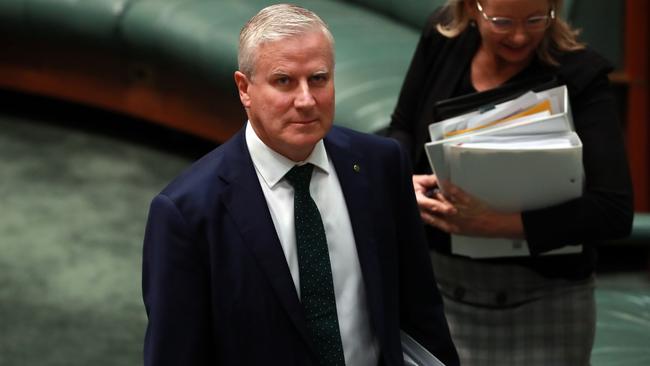
Olivia Caisley 2.21pm: Drought report ‘kept quiet’
Labor MP Meryl Swanson asks why the Morrison government is still sitting on the National Drought Coordinator’s report into the drought.
The report, compiled by Major General Steven Day, was delivered to the government in April.
Scott Morrison takes the question, saying the report will be released in the “not-so-distant future.”
He spruiks the government’s drought response plan, saying the government’s Farm Household Allowance is now “the most generous it has been in its entire history”.
Olivia Caisley 2.16pm: Labor Party ‘at war’
Opposition agriculture spokesman Joel Fitzgibbon asks Scott Morrison why he won’t convene a cross-party drought cabinet to “adequately respond to the growing drought crisis”.
The Prime Minister comes out guns blazing.
“The members of the Labor Party who sit on this frontbench here, can’t even operate functionally in a shadow cabinet let alone actually participate in an actual cabinet at the end of the day,” Mr Morrison says.
When prompted by Speaker Tony Smith to answer the Question, Mr Morrison says Australia didn’t have a war cabinet even when it was at war.
“I would say this — the response that we’re providing is comprehensive,” Mr Morrison says. “It is dealing firstly with the assistance directly to farm households whether they be farmers or graziers or others.
“It is investing in the communities that need the support to work through the drought and to provide resilience for the future.”
Olivia Caisley 2.10pm: Press freedom raised
Question Time kicks off with Labor leader Anthony Albanese, who calls on Scott Morrison to answer why the Prime Minister said politicians shouldn’t decide who is prosecuted in terms of media freedoms.
Labor claims the comments are in contrast to Attorney-General Christian Porter’s recent directive requiring prosecutors to get his approval before charging journalists under national security laws.
The Prime Minister says Mr Albanese should have “paid attention” to his full answer.
“The ALP is asking us to rule out consent even before any advice is received from any of the relevant agencies which would be unprecedented and most likely unlawful,” Mr Morrison says.
“What I said yesterday is exactly what I mean and that is no-one should go and be prosecuted on the basis of what occupation they hold. The only basis upon which they should be prosecuted is if they have broken the law.”
Lilly Vitorovich 2.05pm: ‘Critical to democracy’
SBS managing director James Taylor says the media industry’s Your Right To Know campaign, which calls for greater media freedom in Australia, is critical to democracy and underpins the public’s trust.
Mr Taylor said the multicultural broadcaster is a member of Australia’s Right to Know coalition and “proudly so”, in response to a question about the unprecedented media campaign during his appearance at Senate Estimates in Canberra on Tuesday.
“We value press freedom in Australia, and we support the concerns that have been raised through the coalition,” he told Senate Estimates on Tuesday.
“We believe this is an important issue, and as a public broadcaster we play a critical role in ensuring Australians have access to reporting, which holds individuals and organisations to account, scrutinises and brings to light matters in the public interest.
“We think it’s critical to any democracy and it underpins this trust that Australians have in us, and in public institutions more generally,” he said.
In a united call for better media freedom, media companies censored their front pages on Monday following increasing attacks on the rights of journalists to do their job. The Australian Federal Police raided the home of News Corp Australia journalist Annika Smethurst on June 4, and a day later raided ABC’s Sydney’s headquarters in Ultimo.
Greg Brown 1.56pm: Agriculture visa still up in the air
Scott Morrison has failed to ask bureaucrats to establish a dedicated agriculture visa, a year after he declared the government would “work to establish one”.
In Senate estimates last night, Department of Home Affairs secretary Mike Pezullo said the “functional outcome” of an agriculture visa were being sought without the creation of a new visa class that would facilitate labour from Asia.
“There have been many discussions at ministerial and senior official levels about how to deliver on the functional outcome that is being sought,” Mr Pezzullo said.
“There are different ways to credential people to come into Australia, whether it is labour related schemes, whether it is working holiday, whether it is designated area migration agreements.
“Rather than resolving down to a particular solution that is named x-visa it is best put it in the hands of the practitioners to assist the agriculture and horticulture sector generally, along with our partners in agriculture and employment, to design an immigration program.”
Mr Morrison dropped his resistance to the visa last year after Deputy Prime Minister Michael McCormack faced internal dissent over the government’s failure to create a dedicated agriculture visa.
“Yes, we will work to establish an agriculture visa, that is the long-term solution and even the medium-term solution,” he told an event organised by the National Farmers Federation last year.
Olivia Caisley 1.40pm: Nats weak on drought: Hanson
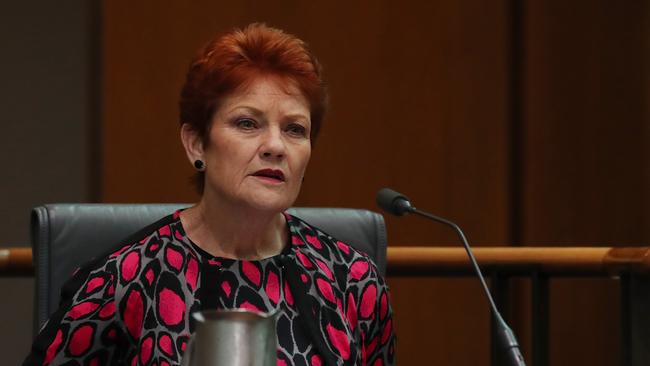
One Nation Senator Pauline Hanson has accused the Nationals of being “weak and ineffective” when it comes to the party’s drought response, declaring they are letting farmers down.
Speaking on Sky News on Tuesday Senator Hanson also took aim at the Morrison government for “not having a plan” to tackle drought and called for the Farm Household Assistance payment to be extended beyond four years.
“The fact is there’s no time limit on drought in Australia for that matter,” Senator Hanson told Sky News on Tuesday. “So farmers need that backup and assistance if we don’t have a time limit on people getting Newstart or other allowances, why are we putting a time limit on farmers?”
The One Nation leader also lashed the Nationals for being “weak and pathetic” for failing to do enough to support rural and regional communities.
It comes as Senator Hanson became embroiled in a Nationals party split on Tuesday after some of Agriculture Minister Bridget McKenzie’s colleagues aired complaints about her performance as deputy leader.
The ABC reported rumblings within the party began last week after Senator McKenzie introduced a dairy industry code of conduct, following pressure from One Nation leader Pauline Hanson.
Senator said as well as the Morrison government she “also blamed” the Nationals for the plight of drought-affected farmers.
“They [the Nationals] have been so weak and pathetic in supporting those rural and regional areas for so long now,” Senator Hanson told Sky News. “They are the tail of the dog. They’re ineffective and I’ve noticed that even with the dairy industry.”
Senator Hanson said there had been a “lot of dissatisfaction” surrounding Senator McKenzie’s introduction of a mandatory code of conduct for dairy.
“It’s the whole mentality of the National party — they see me as a threat. I am as long as you don’t do your job,” she said.
Joe Kelly 1.35pm: DNA tests for ISIS brides
Home Affairs Minister Peter Dutton says “there is no question” the return of ISIS brides in Syria would expose Australians to an increased risk of terrorism and that DNA testing would be required to verify their citizenship claims.
“Some people will face arrest if they do get back to Australia because we’ve been able to gather enough evidence in relation to them. Others we just don’t know the level of threat,” he said.
“There are others who, on the advice from the agencies, pose a very significant threat. That is, there is a probability of them committing a terrorist offence if they return to Australia. That is who we are dealing with.”
Speaking on 3AW radio, Mr Dutton said DNA testing would also be needed to verify the claims of Australian citizenship made by ISIS brides. He acknowledged that it was “very difficult to see how these people can come back.”
Mr Dutton said the government did not know how many women and children were being held in refugee camps in Syria but warned that their identities and background would need to be thoroughly examined.
While some claimed to be Australian, he argued it was sometimes hard to prove.
“We don’t know whether they are (Australian citizens). You would need DNA testing and you’d need other checks to be made,” he said.
“But this is an incredibly dangerous situation and the government has been very clear that we aren’t going to put defence personnel or DFAT personnel or Home Affairs personnel in harm’s way to provide support to these people.”
Mr Dutton said his advice from ASIO and other intelligence agencies was that “some of these women are as bad as any male combatants, terrorists that they’ve seen over there.”
He warned that to bring some of the ISIS brides to Australia would be to subject others to an increased risk of terrorism.
“There’s no question about that,” he said.
“I want to be in a position where I can keep Australians safe … It’s even more difficult to impossible on the advice from the agencies now for us to go into that zone.”
Liberal backbencher Dave Sharma also weighed in on the ISIS Brides debate on Tuesday, telling ABC News the Australians detained at Al-Hawa camp in Northern Syria shouldn’t be extracted from a situation of their own making.
“I think the situation they’ve found themselves in, and in some cases put themselves in, depending on their individual circumstances, is one we never would have advised or counselled them to do,” Mr Sharma said.
“While we would certainly welcome them back to Australia should they make it back here, I don’t think we should be placing Australian lives or assets or personnel at risk in order to extract them from a situation, largely of their own making.”
1.15pm: Ardern vs Jones
The trans-Tasman stoush between Alan Jones and Jacinda Ardern continues. Sky News is reporting Jacinda Ardern launched a personal attack against Alan Jones in 2012 when she referred to the broadcaster as a “git” and claimed he was “intensely disliked”.
Jones wrote to Ms Ardern in August to unconditionally apologise for saying she should have a sock shoved down her throat. Jones had fired up on his 2GB program, to say Ms Ardern was “preaching on global warming” at a Pacific Islands Forum in Tuvalu.
The comment sparked a social media storm with Jones forced to explain that there had been a “wilful misunderstanding” of his comment.
Today, Ms Arden would not comment on her 2012 tweet when Sky News contacted her office.
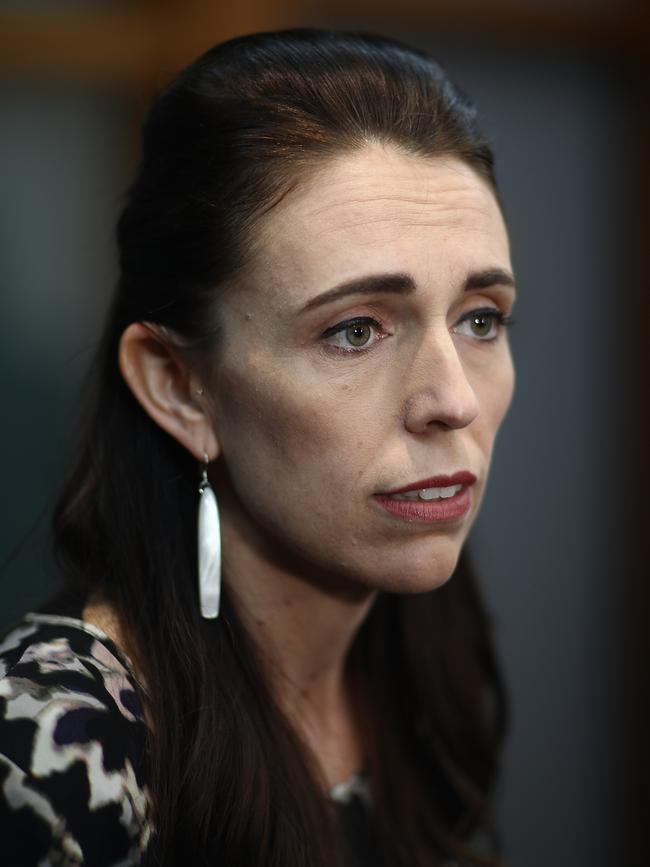
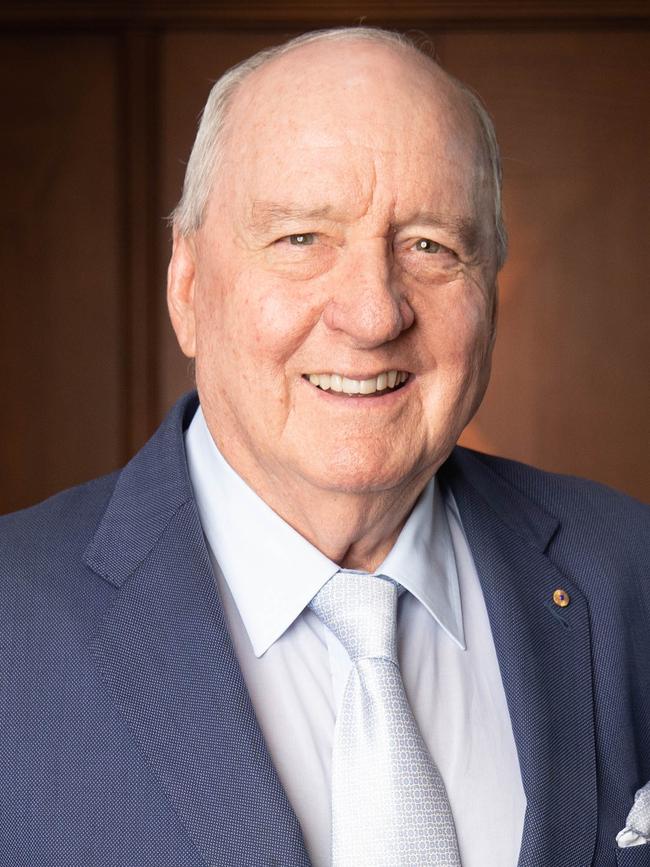
However, the nature of the criticism surprised New Zealand’s Deputy Prime Minister Winston Peters who defended Mr Jones.
Mr Peters said the slur was out of character. “It’s very unlike Jacinda to do that … you’ll have to agree, I’ve never heard of that sort of thing before,” he told Sky News. “Jacinda Ardern has tried to make kindness and compassion a centrepiece of her leadership.
“Jacinda’s normally a seriously nice person.”
Olivia Caisley 1.00pm: Post ‘subsidises mail to China’
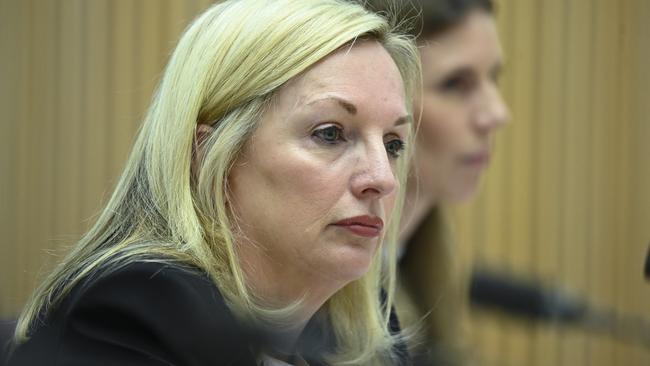
Australia Post CEO Christine Holgate says the national post service is effectively subsidising deliveries to China due to internationally-set prices for letters and small package deliveries.
Ms Holgate told a Senate estimates hearing on Tuesday the cost of Australia Post’s local letter delivery business was cutting into the corporation’s revenue at a cost of $191 million last financial year. It also made a $40 million profit.
The government-owned company will seek to increase postage rates by 10 cents from January to help absorb those costs.
“If we exclude letters from our business in this first quarter, our underlying revenues are up 14 per cent,” Ms Holgate said.
When it came to shipping rates set by the Universal Postal Union, Ms Holgate said 70 per cent of its losses under this international agreement were on its China leg.
Ms Holgate said a cap on this price would be lifted in the next three years, allowing Australia Post to reassess the charge.
Ms Holgate said while China pays Australia $1 to send a letter here, Australia has to pay $1.75.
She pointed to US President Donald Trump who criticised how much his nation was paying to send letters and small packages to China.
“I guess the objections that Mr Trump had was that he sees China very much as the developed nation and didn’t accept the argument that countries like Australia, the USA and Canada should be subsidising their costs,” Ms Holgate said.
Michael Roddan 12.45pm: Climate ‘first order’ economic risk
Future Fund CEO David Neal fund has agreed with the nation’s top regulators on the financial risks posed by climate change and said the $166 billion sovereign wealth fund demands its fund managers factor climate risk into their decisions.
Appearing before a Senate Estimates committee on Tuesday, Mr Neal endorsed the views of the Reserve Bank, the Australian Prudential Regulation Authority and the Australian Securities and Investments Commission that climate change and the conversion to a low-carbon economy or a world with more erratic weather would have “first-order economic effects”.
“We agree with those statements,” Mr Neal told senators.
Click here for the full story.
Rosie Lewis 12.40pm: Refugee appeals overwhelm tribunal
The Administrative Appeals Tribunal is struggling to meet unprecedented demand as it is inundated with a record number of cases for review, predominantly of failed refugees and migrants.
Appearing before Senate estimates on Tuesday, AAT registrar Sian Leathem said there was a record 60,595 lodgements in the last financial year with the tribunal able to finalise 44,413 applications.
“The AAT is a demand-driven organisation. We face ongoing challenges in our ability to meet that demand, largely as a result of large increases in the numbers of applications lodged in the Migration and Refugee Division,” Ms Leathem said.
“These types of applications are now at record levels, and have more than doubled over the past three years. These challenges were reflected in other aspects of our performance in 2018–19, including a deterioration in the timeliness of our finalisations.”
The median time it took to process refugee and migration cases was 68 weeks for migrants in 2018-19 and 72 weeks for people seeking protection in Australia.
“Outside of the Migration and Refugee Division, we continue to meet or exceed our target of resolving more than 75 per cent of applications within 12 months from the time of lodgement,” Ms Leathem said.
“However, due to the increasing backlog and delays in the MRD, our overall result declined from 77 per cent in 2017–18 to 66 per cent in the 2018-19 year. This trend is set to continue.”
The Australian revealed in September there had been a 257 per cent increase between July 2016 and August this year in migration and refugee cases, driven by greater numbers of permanent and temporary visa refusals.
The backlog of active cases has grown from 17,480 to 62,476 and is getting worse each month. Even if each case involved only one person, the total number involved would equal the population of Wagga Wagga in NSW or Shepparton in Victoria.
The surge in AAT cases in the past three years comes after the Coalition progressively introduced tougher integrity and vetting processes to the immigration program, including greater scrutiny of applications and use of biometrics and intelligence.
Troy Bramston 12.25pm: ALP should go back on Albanese
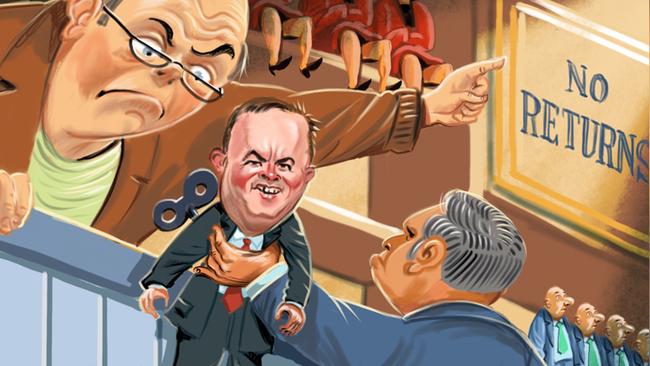
There is talk in Coalition and Labor ranks that Scott Morrison may go to an early election, in about two years, in late 2021, rather than wait until mid-2022 when an election for the House of Representatives and half the Senate normally would be due. Why? Because he knows he has Anthony Albanese’s measure.
In more than five months since the election Albanese has done next to nothing to demonstrate that Labor has learned anything, changed course on policy or strategy, or put his stamp on the party in any noticeable way. His office is talking up a 1990s-style “headland” speech next week. Is that it?
Click here for the full story.
Michael McKenna 12.20pm: Palaszczuk found in contempt
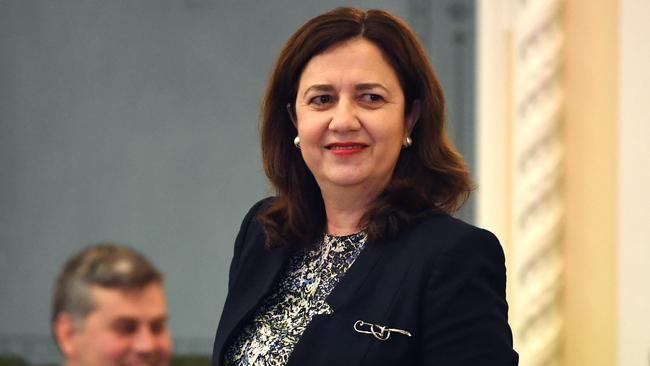
Queensland’s parliamentary ethics committee has found premier Annastacia Palaszczuk in contempt of parliament over her attack last year on Katter’s Australian Party and former senator Fraser Anning.
In Question Time in August last year, Ms Palaszczuk threatened to withdraw funding for the Katter’s Australian Party parliamentary staff, if the party did not formally denounce comments by then KAP federal senator Fraser Anning about a “final solution” to immigration.
Click here for the full story.
Alice Workman 12.00pm: Labor hurdle to big stick laws
Labor has added an extra hurdle to the Morrison government’s so-called big stick laws to prohibit misconduct in the energy department, due to be debated this week.
Federal Labor caucus agreed on Tuesday morning that the party’s support would be conditional on a further amendment that would protect workers’ entitlements, such as redundancy payments, if divestment occurs.
The impact of workers’ rights wasn’t raised as an issue with Labor’s leadership team until Sunday night, so wasn’t previously considered.
Labor reversed its opposition to the bill last week, after the government indicated it would agree to a number of amendments, including one that would prevent the new regime being used to advance privatisations.
The big stick powers aim to make it easier to break-up the assets of energy companies that abuse their market power.
Labor has previously described as a bizarre Venezuelan-style intervention in the economy.
Opposition energy spokesman Mark Butler has stipulated that if the government doesn’t support the proposed amendments, they will vote against the whole bill.
It’s understood the government is open to discussing Labor’s amendments
Ean Higgins 11.20am: Doubts over dam timetable
Infrastructure Australia has yet to receive a business case for the proposed $480 million Dungowan Dam in NSW, raising questions about when construction can begin.
Earlier this month Scott Morrison made a high profile announcement that the federal and state governments had given the go-ahead for the new dam to replace the existing one which supplies Tamworth in the state’s northeast.
That project had up until that point been listed as one for which the governments still had to reach agreement on how to proceed.
Click here to read the story.
Olivia Caisley 10.45am: ALP ‘conning Aussies over medivac’
Home Affairs Minister Peter Dutton has lashed Labor for “conning” Australians over its controversial medivac legislation, declaring the “bad bill” is being used by asylum seekers to rort the system and enter Australia.
Head of Operation Sovereign Borders, Craig Furini, told a Senate Estimates hearing on Monday 135 asylum seekers had been transferred to Australia from offshore detention for medical treatment since the legislation passed in March.
Of those transferred, only 13 people — one in 10 — had been hospitalised while five refused treatment.
“This was always a bill about getting people here through a back door,” he told 3AW on Tuesday. “It’s without precedent that you have a government being dictated to, being told that people must come to your country, and then when they’ve received the medical attention they can’t be returned back to their country of origin or back to Nauru or Papua New Guinea.”
Mr Dutton said six asylum seekers who came to Australia under the legislation presented serious concerns, but he was powerless to stop their passage into the country.
“We’re worried about the fact that they may have committed crimes and we’re compelled to take that person, I just don’t think most Australians support that,” Mr Dutton said. “We’ve had six of those cases now, there are two more in the system as well, and I think people are laughing at us. It’s infuriating.”
“We’re now stuck with these people. It’s a bad bill for our country.”
Home Affairs Department secretary Mike Pezzullo told the hearing on Monday it was a “grievous flaw in the legislation” that detainees could be brought to Australia for assessment without the ability to return them to offshore processing.
Mr Dutton said he was relying on the support of crossbench Senator Jacqui Lambie and other Independents to reverse the bill.
Senator Lambie, who will cast the deciding vote in parliament next month, has indicated she will take time to digest the Senate review report into the bill before making a decision.
“By allowing these people into our country we are allowing people in who have the potential to assault, to commit crimes while there here, and that shouldn’t be a feature of our migration system,” Mr Dutton told 3AW.“We must have a discretion where people are of bad character to stop them from coming to our country.”
Olivia Caisley 10.00am: ‘How long will you stay?’
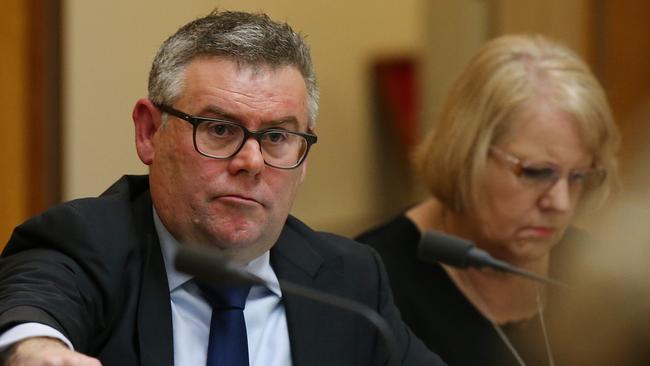
Alleged tensions within the Nationals party spilled over into Senate Estimates on Tuesday when Labor Senator Murray Watt attempted to grill Bridget McKenzie over her leadership at a hearing into rural and regional affairs.
PoliticsNow: Labor Senator Murray Watt attempts to grill Bridget McKenzie over her leadership, but is shut down by Nationals chairwoman Susan McDonald. #estimates #auspol @australian pic.twitter.com/mT73V6tHvN
— Olivia Caisley (@livcaisley) October 21, 2019
“Many National Party members want to replace you as deputy leader,” Senator Watt said, adding: “How long do expect to remain as the Minister for Agriculture?” before he was shut
down by chair Susan McDonald, who questioned the relevance of his probe.
9.55am: Race horses’ welfare ‘top priority’
Australia’s agriculture ministers will urgently discuss the welfare of retired race horses after a scandal surrounding the animals being mistreated before being slaughtered.
Federal Agriculture Minister Bridget McKenzie said the issue would be a top priority at Friday’s meeting with her counterparts.
“It’s really important that we have a discussion as the country’s agriculture ministers about how we adopt and practice world’s best animal welfare standards,” she told a Senate estimates hearing in Canberra.
AAP
Olivia Caisley 9.40am: Nats party room ‘tense’
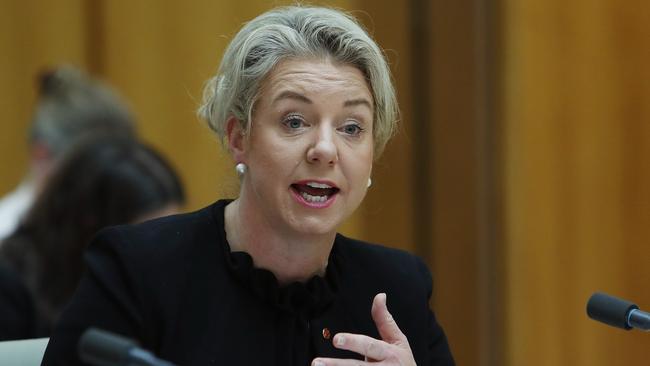
Speaking on Sky News on Tuesday, Nationals MP Darren Chester confirmed Monday’s party room meeting had been a tense affair, but played down ructions as a case of colleagues “bumping into each other.”
“There is no shortage of members of parliament with passion and big ideas and sometimes those ideas, those passions, bump into each other and they play out publicly,” he told Sky News. “It’s much ado about nothing.”
“People come to debate big ideas about the future of our nation and the agricultural portfolio, the one that Bridget McKenzie, our deputy leader holds, is a pretty complex policy area.
“There are a lot of issues right now we are going through one of the worst droughts, probably in our nation’s history and there are a lot of issues to resolve.”
Olivia Caisley 8.50am: ‘Fantastic’ McKenzie defended
Nationals whip Damian Drum has lashed out at party colleagues agitating over Bridget McKenzie’s performance as deputy leader, declaring his full support for the “fantastic leader.”
The ABC reported on Monday that Nationals backbenchers had voiced their frustration with Senator McKenzie’s leadership style and the fact she had bought forward the introduction of a dairy industry code of conduct following pressure from One Nation leader Pauline Hanson.
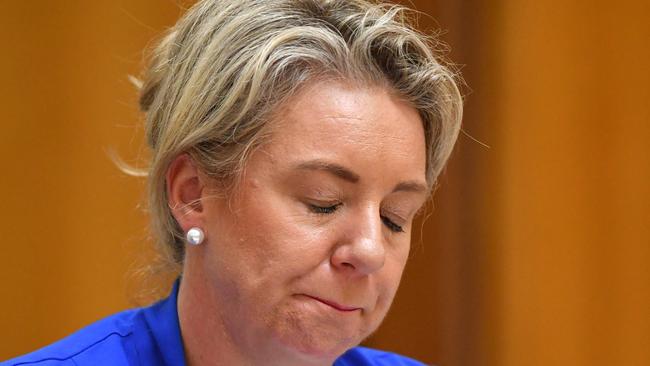
But Mr Drum threw cold water over claims Senator McKenzie’s leadership position was in jeopardy, saying anger lay in the fact One Nation was getting credit for the work the Nationals had been doing behind the scenes on the dairy inquiry.
He also lashed those responsible for leaking “sacrosanct information” from Monday’s Nationals party room.
“I think it’s very poor to leak anything out of the party room, there’s no excuse, there’s never a good time to leak out of the party room,” Mr Drum said. “It doesn’t matter how passionate you are about any issue.”
Mr Drum said those considering a challenge to Senator McKenzie’s position as “crazy”
“She’s such a fantastic leader … this is nothing about Bridget McKenzie, this is about One Nation getting credit for something they haven’t done. The Nationals have done all the work behind the scenes and the Nationals deserve credit for that. That’s where the anger lies.”
He added: “Deals have been done to secure One Nation’s vote in the Senate and all of a sudden Pauline Hanson is getting credit for something she hasn’t done.”
Senator Pauline Hanson last week threatened to abstain from voting on “non-critical” legislation in the Senate until the Morrison government stepped in to save dairy farmers.
On Friday Senator Hanson won support for a parliamentary inquiry into re-regulating the dairy industry, despite pushback from the coalition.
Backed by Labor and crossbenchers, the inquiry will look at the merits of tasking the competition watchdog with a dairy investigation.
The Australian Competition and Consumer Commission will investigate how it could regulate the price of milk per litre paid by processors to dairy farmers. The proposal mirrors Labor’s pre-election policy.
Senator McKenzie was elected as deputy leader in 2017 and took over the agriculture portfolio from David Littleproud in May this year. Mr Littleproud still oversees water and drought policy.
Olivia Caisley 8.20am: Steggall presents climate petition
Independent MP Zali Steggall will present a record-breaking climate emergency e-petition to parliament today after it garnered over 400,000 signatures.
The petition calls on federal parliament to declare a climate emergency and for immediate action on climate change to minimise “catastrophic” human and environmental destruction.
“The petition stated that the overwhelming majority of climate scientists around the world have concluded that the climate is changing at unprecedented rates due to anthropogenic causes,” Ms Steggall said. “The result of these changes will be catastrophic for future generations, and so we must act now to minimise both human and environmental destruction.”
It is expected to be presented to the House of Representatives at 1.30pm on Tuesday.
What’s making news:
Scott Morrison has declared that journalists should not be prosecuted at the “whim of politicians”, a month after Attorney-General Christian Porter gave himself new powers to make the final call to take reporters to court for exposing government secrets.
Pacific Minister Alex Hawke has flagged an expansion of the government’s “step up” military strategy, suggesting island-nation battalions could be integrated in an Australian Defence Force unit.
Record-low interest rates have blown out the commonwealth’s unfunded superannuation liability by $50bn in a year, heaping pressure on the Morrison government as it ruled out drawing on the Future Fund, which has surged to more than $165bn.
The National Redress Scheme will have its funding lifted to more than $45m in a bid to increase access to the program and fast-track processing for survivors, who are increasingly naming multiple institutions in their applications.
The majority of voters are opposed to allowing Australian Islamic State brides and their children to be brought home from Syria following calls for them to be repatriated.
Fewer than one in 10 refugees and asylum-seekers transferred to Australia under Labor-backed medivac laws has required hospital treatment, and none is currently receiving in-patient care.
Alice Workman’s Strewth: Senate estimates has thrown up a fascinating alternative timeline. A Border Force officer accidentally awarded Jacqui Lambie the title of “Minister Lambie” during hearings on Monday. Her Sketch is here.
Dennis Shanahan writes: Scott Morrison has proved to be the best prime minister at retaining winning election levels of primary support five months out from polling day since Kevin Rudd’s popular sweeping victory in 2007.

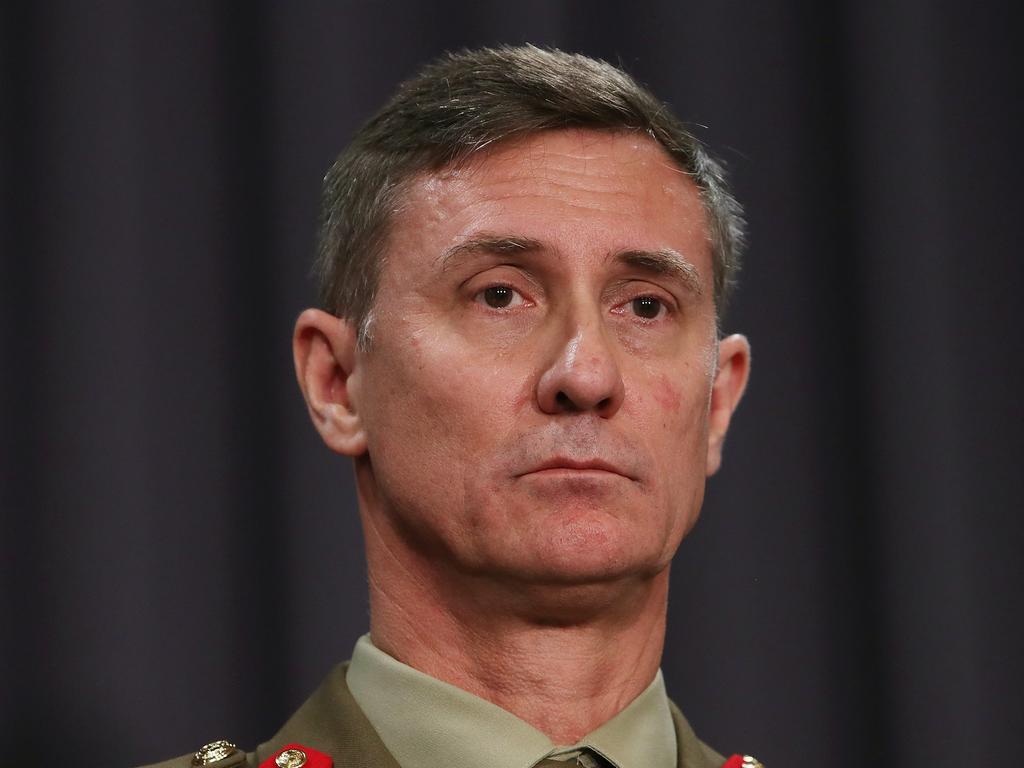


To join the conversation, please log in. Don't have an account? Register
Join the conversation, you are commenting as Logout